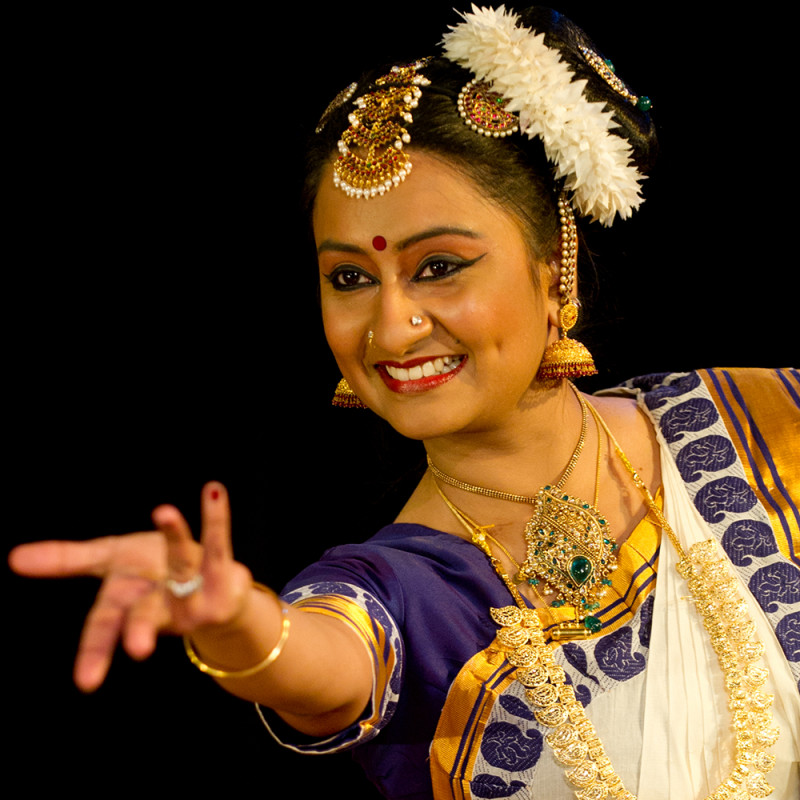Ātete | Resistance | ചെറുത്തുനില്പ്
Created by: Swaroopa Prameela Unni
BATS Theatre, 13th Sep 2023
Reviewed by: Tanya Piejus
One in four women in Aotearoa New Zealand experience family violence. Women of Indian ethnicity are part of this statistic but, the production notes state, little is known about the challenges they face, not only from the patriarchal culture but also the shame and stigma. These women’s bodies become a site for violence in many forms – emotional, physical, financial, and sexual. On as part of the TAHI Festival, this solo dance-theatre piece explores a woman’s right to bodily autonomy within the Indian community of New Zealand through a few spoken words, many and complex dance movements, and digital media.
Ātete is choreographed in Mohiniyattam, a South Indian dance form known for its portrayal of ideal womanhood. Swaroopa Prameela Unni is elegantly expressive in her body and especially her face as she turns this dance form on its head to present stories of women growing up within Indian culture and the violence enforced on them behind the façade of respectability.
“Get married, everything will be OK”, says Unni at the start, but what unfurls through her carefully choreographed movements is anything but. Assisted by three bowls of body paint ̶ first red, then green, and finally and violently white ̶ she dances stories of abuse and women’s responses to it. I wish I knew more about Indian dance and the meanings of its hand gestures to appreciate the full subtleties of these stories. However, it’s clear what’s intended. If any doubt remains, the final set of projected slides makes clear that a global movement is pushing back against gender-based violence, even in India itself.
The music (Jyolsna Panicker and Sandeep Pillai) is melodic and captivating as Unni shows us what men expect from their perfect wives, then sinister and dark as we see what happens behind closed doors. The lighting (Stephen Kilroy) is similarly contrasted as the stage floods with the colours of the paint Unni is applying to herself during the scenes of harm.
Ātete is a powerful, yet hopeful, physical work of beauty and savagery.
View more reviews:
« Click here


